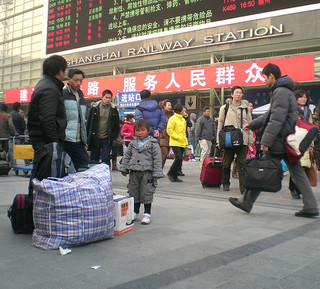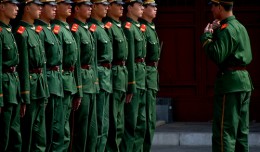 The Chinese city of Chongqing issued new college examination rules last week for children of migrant employees in the city. Many second-tier Chinese cities are piloting education reforms in the college admissions process amid rising protests from migrant workers across the country. Cities in Heilongjiang, Anhui, Jiangsu, Shandong, and other provinces have eased the household restrictions on migrant children taking the college examinations outside of their home provinces.
The Chinese city of Chongqing issued new college examination rules last week for children of migrant employees in the city. Many second-tier Chinese cities are piloting education reforms in the college admissions process amid rising protests from migrant workers across the country. Cities in Heilongjiang, Anhui, Jiangsu, Shandong, and other provinces have eased the household restrictions on migrant children taking the college examinations outside of their home provinces.
Chinese university admission is based on a residency system that only allows residents with official residency permits, or a“hukou,” to take college examinations for the best universities–usually located in the big cities like Beijing and Shanghai. Residents with the city’s hukou can also enjoy preferential quotas in the admissions process. Migrant populations who relocate to work in China’s big cities often face discrimination as their children are required to take their admission examinations in their home provinces, thereby splitting parents and their children in most situations.
China’s first-tier cities–Beijing, Shanghai, and Guangzhou–have not passed any legislation yet, despite the government’s recent move to urge hukou reforms “to ensure [that] all permanent urban residents [will] have access to basic urban public services.” In August, the Chinese government pressed for all provinces to submit plans to increase migrant children’s access to the gaokao by the end of the year.
China’s Global Times reported that cities that currently are home to migrant workers have passed new rules. The cities with the most “sought-after” jobs are have not done so yet. Local authorities in Shanghai have not provided a clear date on when new regulations will be passed in the city. Shanghai officials said they are working on a credit-based system that involves several components that would set gaokao eligibility–school grades, number of years that the migrant parents have worked in the city, family property in Shanghai, and years of social security payments by children’s families.
Creative Commons Love: Remko Tanis on Flickr.com


















Comments